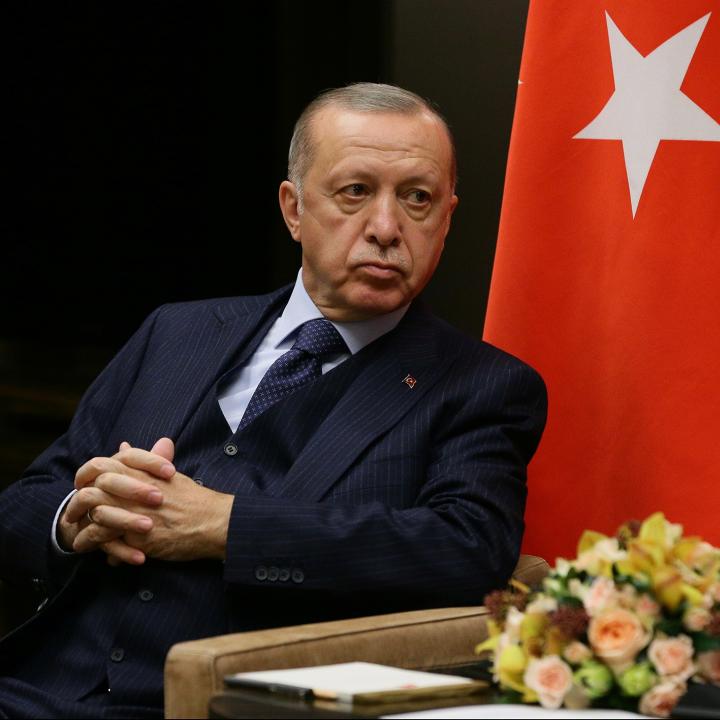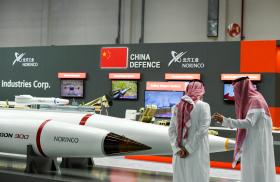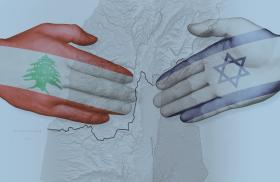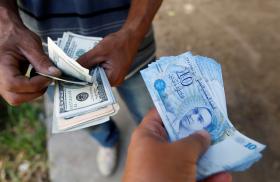
- Policy Analysis
- Fikra Forum
Israeli Military Assertiveness Provides Some Blessings in Disguise for Erdogan

Regardless of rhetoric, Erdogan quietly benefits from conflicts like the recent twelve-day war between Israel and Iran—both in terms of bolstering Ankara's regional profile and in deflecting attention from domestic issues.
President Recep Tayyip Erdogan's disdain for the Netanyahu government and his harsh rhetoric against Israel’s military operations are no secret. He lately labeled Israeli Prime Minister Benjamin Netanyahu the “biggest obstacle to regional peace” and likened Israel’s conduct to outright banditry. During the recently dubbed twelve day war between Israel and Iran, Erdogan condemned the Israeli airstrikes and demanded the resumption of nuclear negotiations while refraining from addressing U.S. involvement directly in his speeches. In a parallel move, he quietly voiced his opposition to a nuclear-armed Iran during a call with German Chancellor Friedrich Merz according to a tweet Merz later posted, though this was quietly left out of the official readout issued by Erdogan’s Directorate of Communications.
At a glance, Turkey has valid reasons to worry about the broader fallout effects of Israel’s recent military strikes on Iran. Already burdened by more than 3.5 million Syrian and Afghan refugees and persistent inflation, Ankara fears that a renewed conflict or further destabilization inside Iran could drive up energy prices and spark a new wave of migration, which risks fueling domestic discontent with the Erdogan government.
Yet a regionally assertive Israel carries multiple silver linings for Ankara, even as Erdogan spares no opportunity to condemn it. On the international stage, Turkey viewed the recent military escalation between Israel and Iran as an opportunity to strengthen its diplomatic relevance. Erdogan reportedly sought to host direct talks between senior U.S. and Iranian officials in Istanbul, although the effort ultimately failed to materialize. Nevertheless, as during the Russian invasion of Ukraine, Turkey moved swiftly to bolster its image as a mediator and a stabilizing NATO member vital to the alliance’s regional outreach. This diplomatic posture allows Ankara to simultaneously manage its relations with the West while maintaining dialogue with regional actors that are often at odds with NATO.
The longer-term impact, however, may be in the conflict’s impact on Ankara’s regional position and domestic challenges. Ankara will likely continue to quietly reap the benefits of Israeli military campaigns that have systematically dismantled Iranian proxies and military infrastructure in the region, just as it did during Assad’s fall. And perhaps more importantly for Erdogan, this type of regional conflict enables him to divert public attention from the country’s inflation crisis and the ongoing crackdown on the opposition, allowing him to rally his nationalist and Islamist voter base through cost-free rhetoric.
Turkey and Iran’s Proxy Networks
Nowhere is the strategic utility to Ankara of Israel’s military assertiveness more evident than in Turkey’s fraught relationship with Iran. As two aspiring regional powers, Iran and Turkey have long maintained a complex balance between rivalry and partnership. More often than not, Turkey and Iran have found themselves at odds as their regional ambitions collided. In Iraq, groups linked to Iran’s Islamic Resistance within the Popular Mobilization Forces (PMF) have issued explicit threats against Turkish military bases in the north, occasionally launching rocket attacks to pressure Ankara into withdrawing from the region. In Syria, Turkey backed and trained opposition forces while Iran mobilized militias in defense of the Assad regime. In Nagorno-Karabakh, Turkey’s staunch support for Azerbaijan was met with Iran’s alignment with Armenia.
In keeping with this regional confrontation, Turkish-Iranian relations entered 2025 in a markedly strained state. In January, pro-Erdogan Turkish media reported that IRGC Quds Force commander Esmail Qaani had met with Mazloum Abdi, leader of the Syrian Defense Forces (SDF). Ankara regards that group as the Syrian offshoot of the Kurdistan Workers' Party (PKK), a Kurdish-separatist group that is designated as a terrorist organization by Turkey, the United States, and the European Union. Tensions escalated further in February when Turkish Foreign Minister Hakan Fidan described Iran’s “militia-driven foreign policy” as dangerous, triggering a diplomatic spat that saw both countries summon each other’s ambassadors. A month later, a pro-Erdogan Turkish newspaper accused Iran of supplying drones to the YPG—the SDF’s main component—further fueling bilateral friction. Around the same time, Turkey’s National Intelligence Organization arrested several suspects allegedly linked to Iranian intelligence in three major Turkish cities.
Coupling these problems in bilateral relations is Turkish officials’ expression of frustration over Iran’s connections with the PKK. In an interview last year, Turkish Defense Minister Yasar Guler has criticized Iran for failing to act against PKK members sheltering on Iranian soil, despite Turkey’s provision of precise intelligence. According to a report of the U.S. Defense Department inspector general from 2022, the Sinjar Resistance Units (YBS)—a militant group that Turkey deems an extension of the PKK in Iraq—has received support and maintained ties with some of Iran’s key proxies in the region, including Kataib Hezbollah. Nevertheless, Turkey refrained from directly targeting Iran’s proxies in the region even after Iran-aligned militias targeted the Turkish consulate in Mosul with rockets in 2022. This policy continued during subsequent Iranian-backed militia attacks on this base, with the last known attack in December 2024.
The direct blows Israel has dealt to Iran’s military infrastructure during the recent confrontation, along with the elimination of key IRGC commanders and the damage inflicted on Iranian proxies since October 7, will inevitably curtail Tehran’s ability to project power in Iraq and Syria for the near future. Preoccupied with the looming threat of external strikes and the fundamental need to secure the regime, Iran will have ample domestic challenges to manage. This may prompt Tehran to prioritize consolidating domestic control and safeguarding critical military assets over maintaining aggressive regional operations or expanding the reach and operational capacity of its proxy militias and covert intelligence networks abroad, including those targeting Turkey.
Turkey’s concerns over Iran-PKK ties, on the other hand, may disappear quickly if the renewed peace process in the country progresses as planned and the PKK disarms accordingly. However, at this point, it is too early to determine whether the process will yield tangible results that would lead to the group’s permanent dissolution or not, especially considering a similar peace effort with the PKK collapsed a decade ago. Meanwhile, Iranian PKK-affiliate PJAK’s co-leader Peyman Viyan made it clear that the group will continue their armed struggle in Iran, signaling that any potential settlement between Turkey and the PKK may not translate into reduced militant activity along Iran’s borders, nor disarmament for other regional PKK offshoots. There remains a risk for Turkey that disarmed PKK elements or their weapons could shift toward PJAK, which may lead Ankara to become concerned that the group would redirect its focus toward Turkey should the peace process collapse. Either way, Iran will remain a key factor in Ankara’s security calculus, even when the focus is on Turkish domestic security concerns.
Conflict as a Domestic Distraction
When it comes to domestic electoral concerns, the Israel-Iran escalation and others like it provide Erdogan with a useful rhetorical tool to divert public attention from mounting internal challenges. Regional conflicts in Turkey’s neighborhood enable Erdogan to reinforce his image as a strong leader defending national interests without dragging the country into an active conflict itself. The recent conflict in that regard represents an opportunity to push back against growing opposition at home and consolidate his increasingly fragile voter base by capitalizing on Israeli threat narratives.
The government is currently polling behind the main opposition party in most major surveys, with some polls showing its support falling below 30 percent for the first time since it came to power in 2002. The ongoing crackdown on the opposition mayor of Istanbul has only amplified public frustration, leaving the government increasingly reliant on external distractions to shift the national conversation away from economic hardship and political repression. This was evident when Erdogan tweeted that the main opposition leader’s call to boycott pro-government businesses was senseless and irresponsible while Israel was striking Iran and the region faced escalating turmoil.
The more media attention can center on external conflict such as the Israel–Iran tit-for-tat attacks, the less focus there is on politically sensitive issues such as the imprisonment of Istanbul’s mayor or the country’s growing cost-of-living crisis. In one of his recent addresses to his party’s parliamentary group, Erdogan, while directing criticism at Israel, asserted that he was convinced the discussions, divisions, and polarization that have plagued Turkey for decades are not the result of internal dynamics, but rather the consequence of external forces. The speech included an interval video emphasizing Erdogan’s diplomatic role in efforts to maintain regional de-escalation, featuring clips from his meetings with world leaders ranging from Trump and Putin to Pezeshkian and Mohammed bin Salman—a portrayal clearly designed to project him as a regional leader and key diplomatic actor capable of navigating complex international crises.
For Erdogan, the current battle is not in Gaza, Tehran, or Tel Aviv. It’s at home, and regional developments serve as a convenient backdrop for that battle. Recent data from a polling company that closely forecasted past Turkish elections shows that Erdogan’s governing Justice and Development Party has recently fallen more than five points behind the main opposition. Moreover, constitutional term limits prevent Erdogan from running for another term in 2028 unless he obtains a three-fifths majority in parliament or successfully amends the constitution. His governing coalition currently lacks at least three dozen votes in order to call for early elections.
Thus, faced with political pressure at home, regional crises offer Erdogan both a distraction and a strategic opportunity. As long as tensions persist in Turkey’s close neighborhood, he can continue leveraging external conflicts to deflect domestic criticism and rally his base. At the same time, Turkey’s strategic importance to both regional and global powers grants Erdogan an indispensable role on the international stage, one that he skillfully uses to project strength and maintain political relevance at home. In this dynamic, regional instability serves as a means of domestic survival that enables Erdogan to further his political hold despite deepening internal weaknesses.


